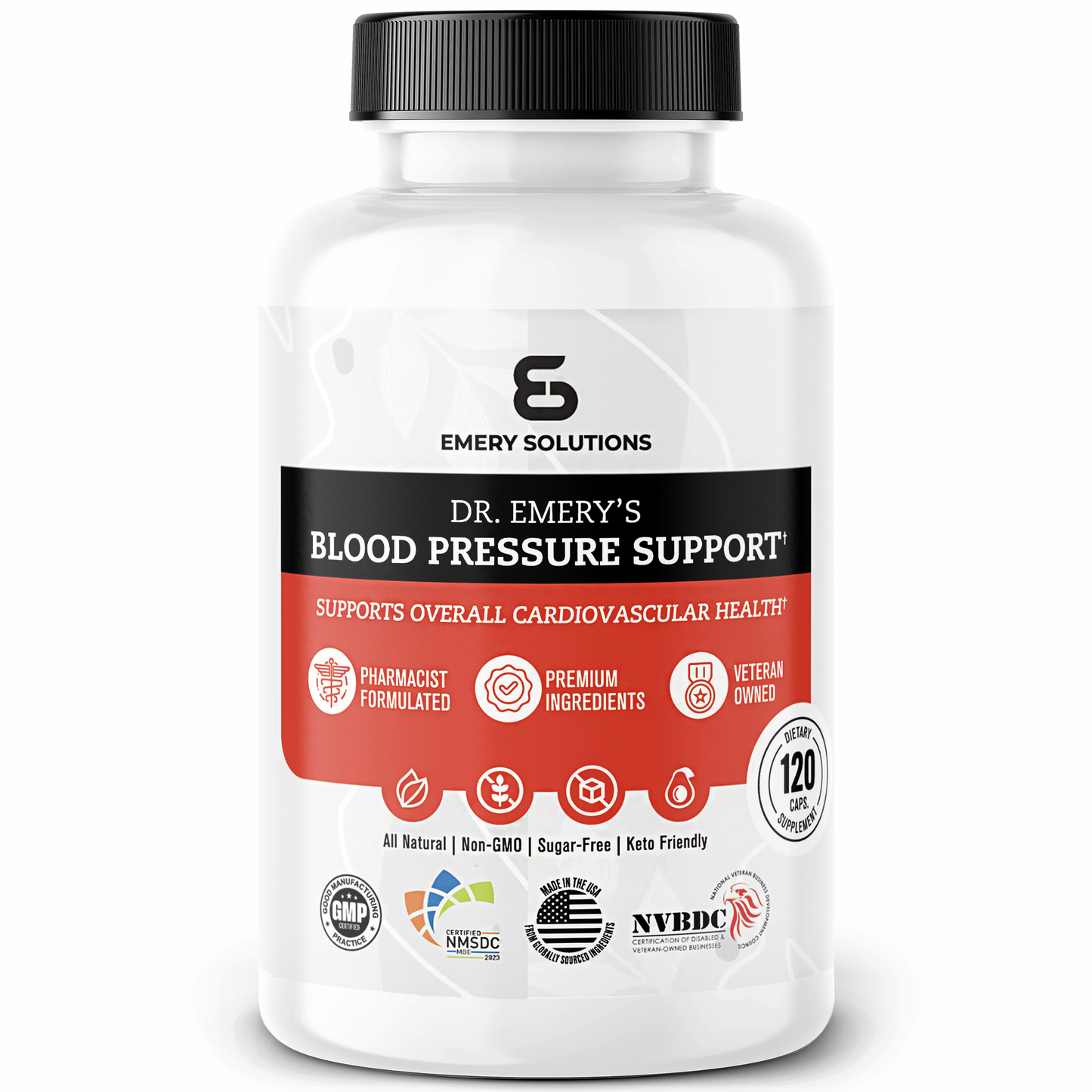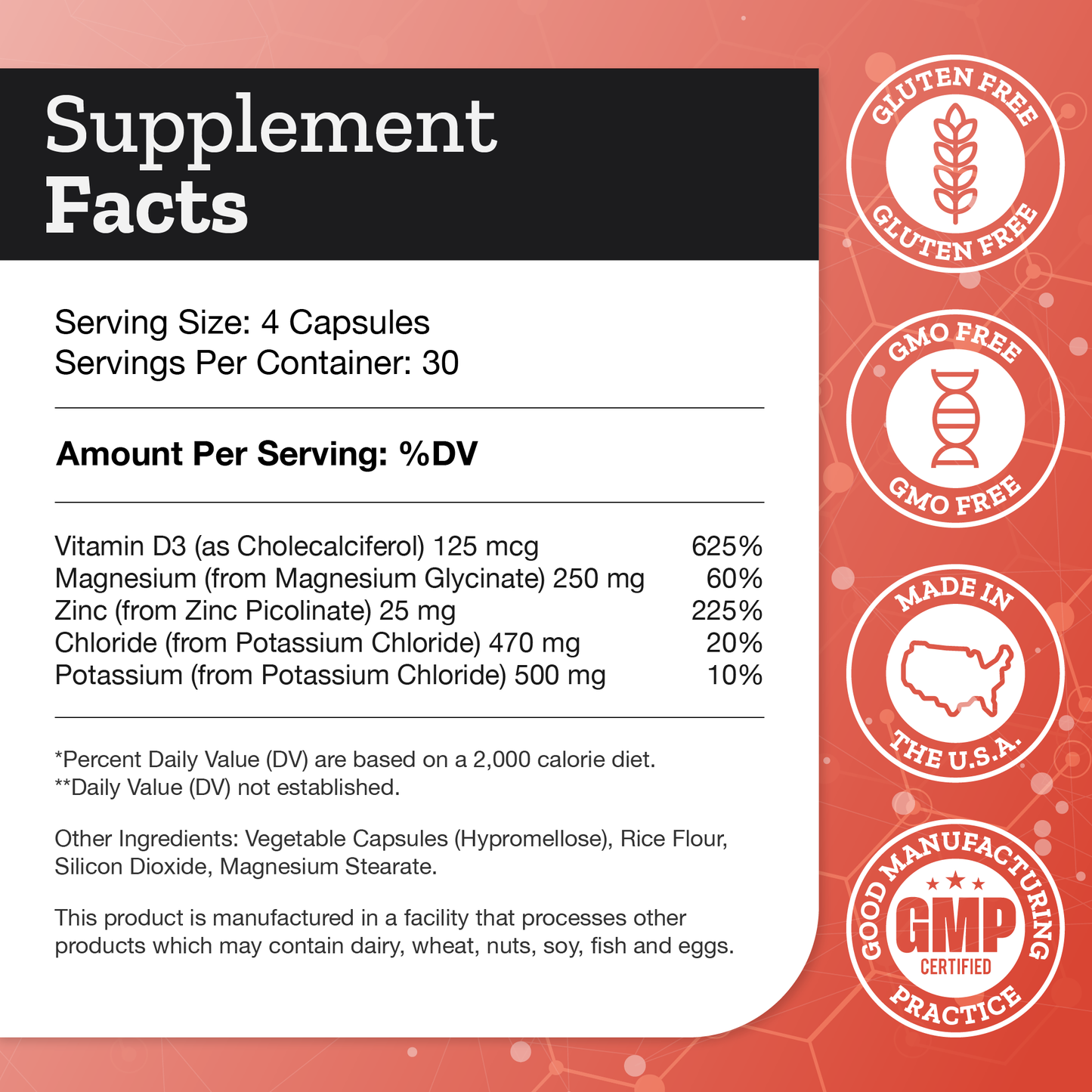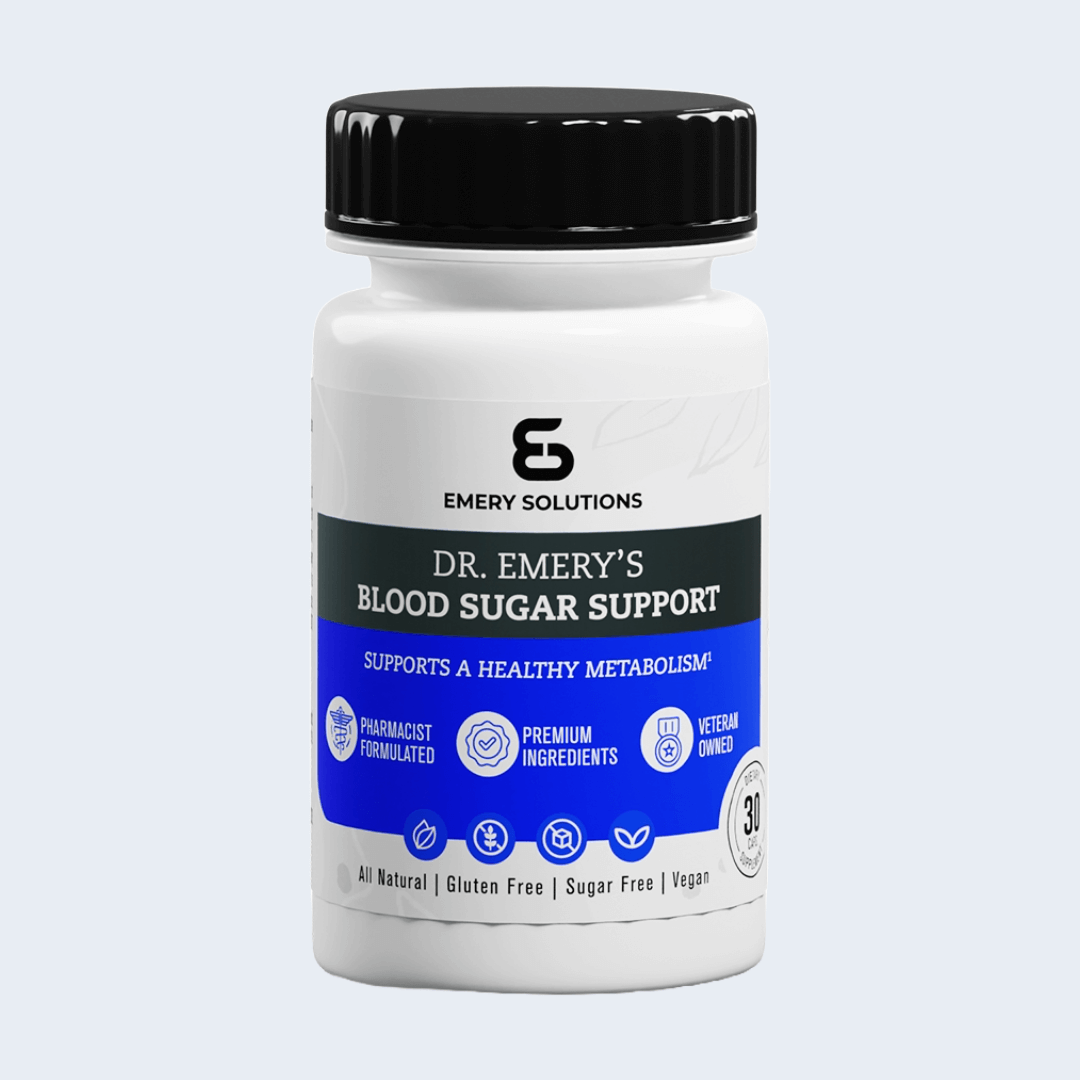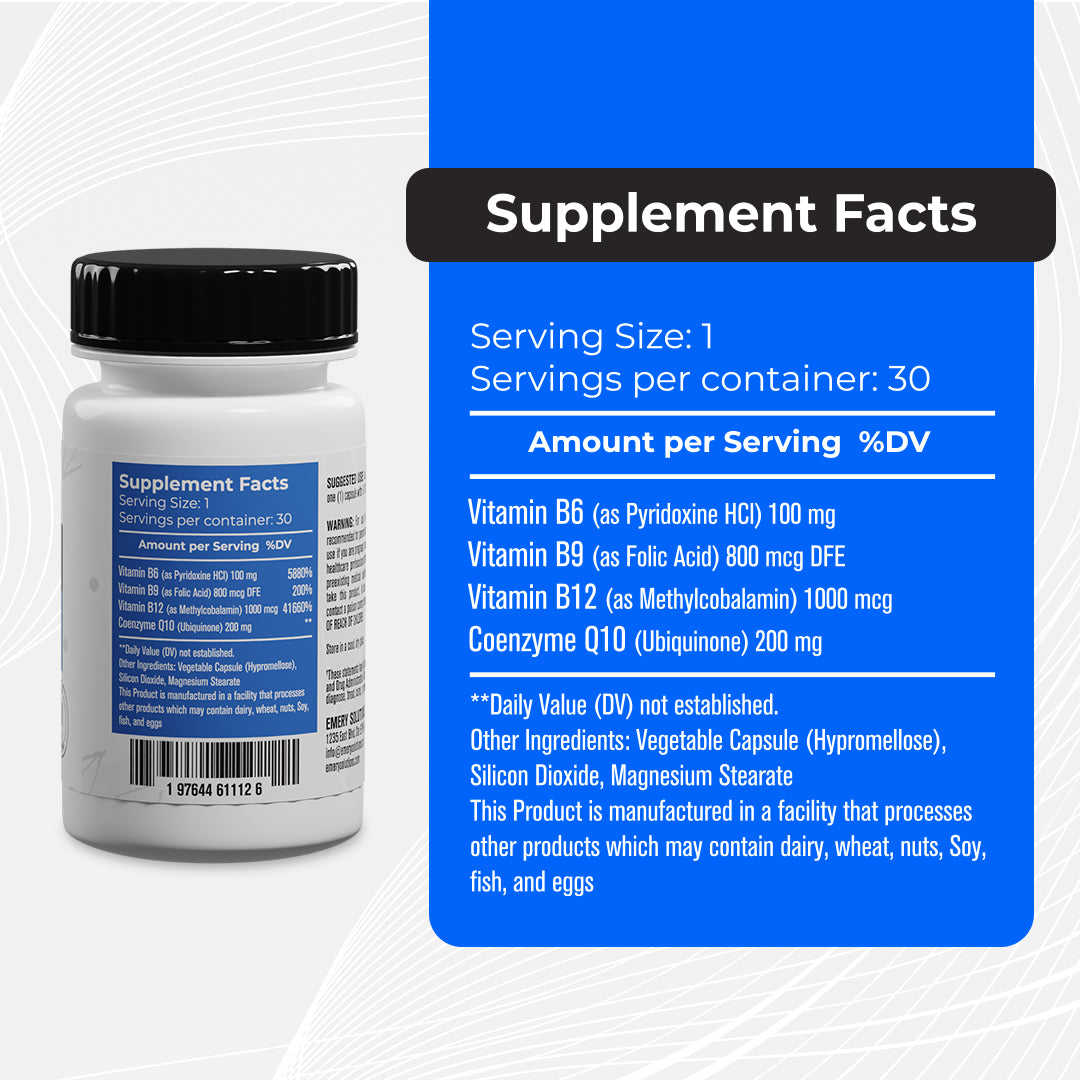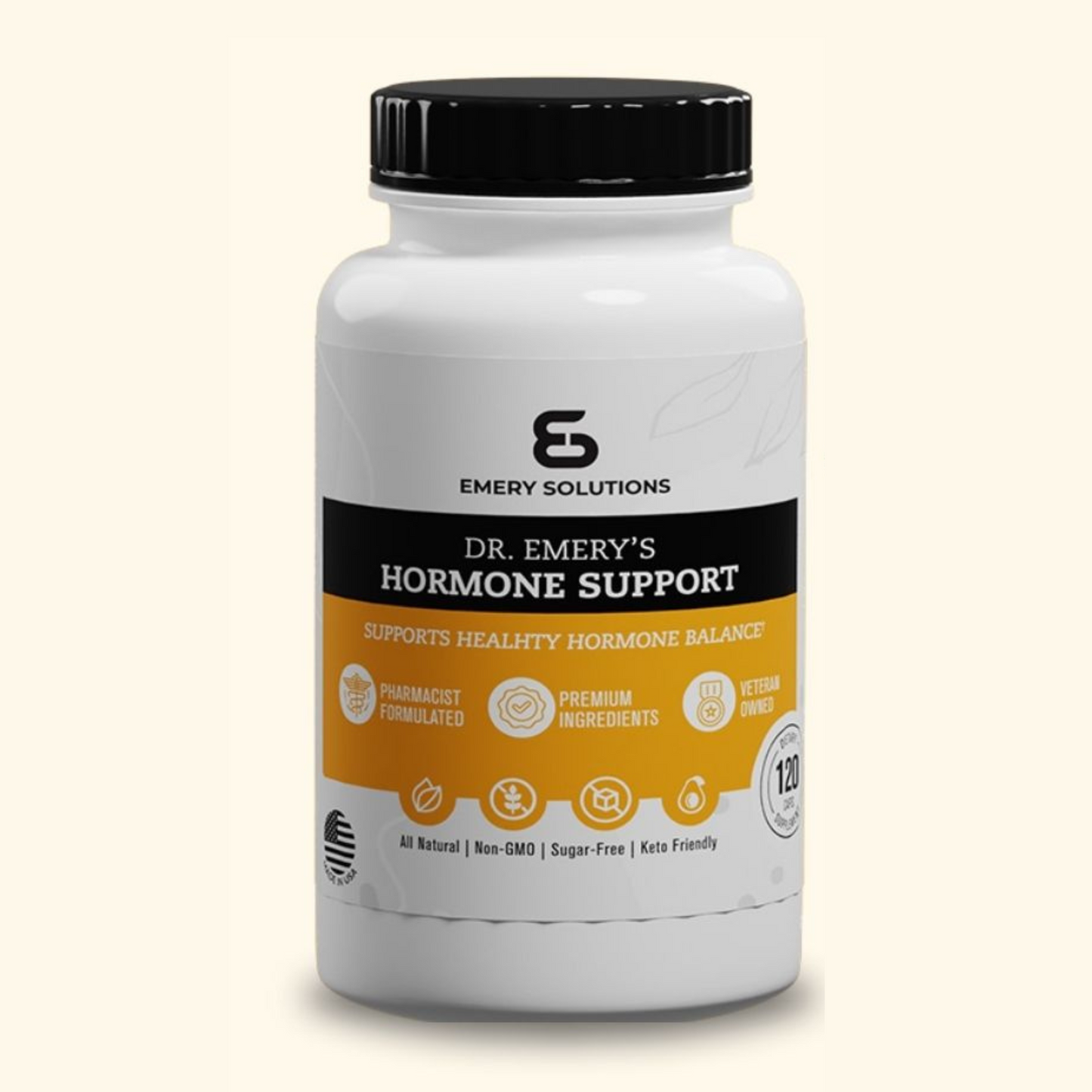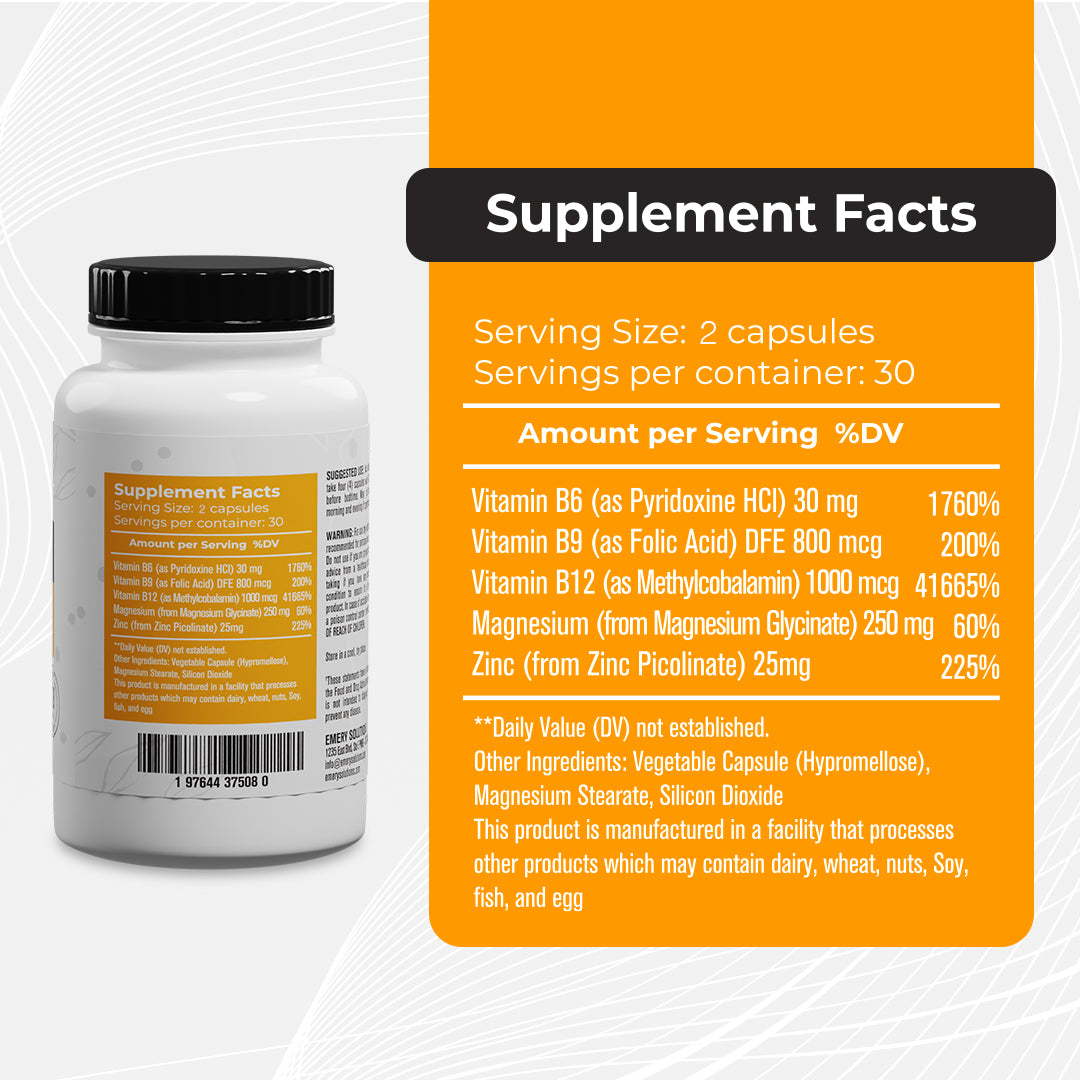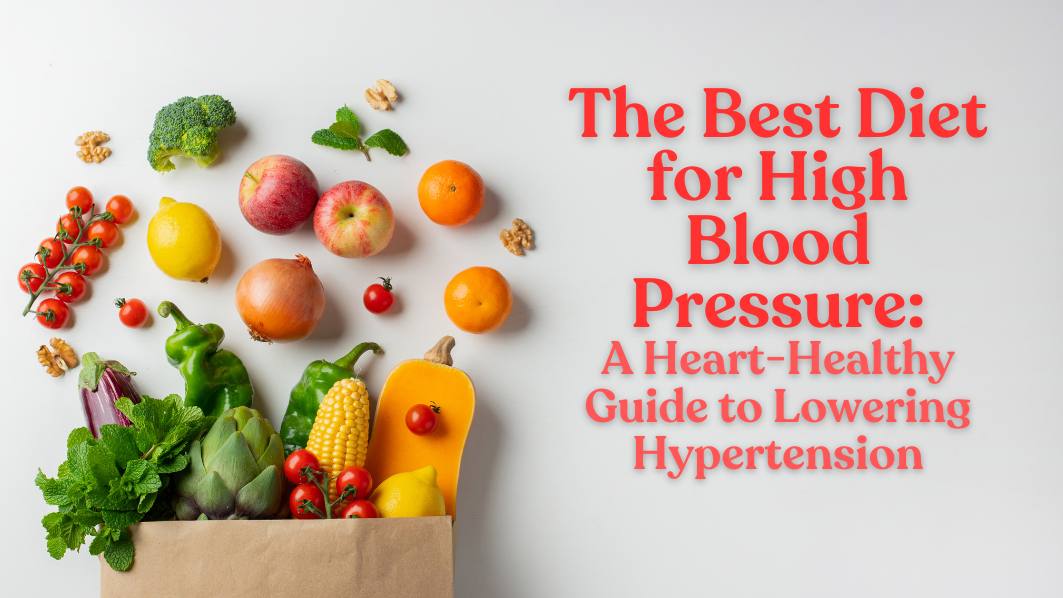

High blood pressure (hypertension) is more than just a number—it's a serious health risk that affects millions worldwide. I’ve talked about this in my videos before—hypertension is often called the "silent killer" because it typically has no obvious symptoms until it leads to something more dangerous, like heart disease, stroke, or kidney damage.
The good news is that high blood pressure isn’t a life sentence. The right diet can be one of your most powerful tools in keeping it under control—without relying solely on medication.
Adopting a heart-healthy eating plan, such as the DASH (Dietary Approaches to Stop Hypertension) diet, Mediterranean diet, or a low-sodium approach, can help lower blood pressure and protect your heart.
But diet alone isn’t always enough. Even with the right foods, key nutrients can still be lacking—especially for those on blood pressure medications, which can deplete essential vitamins and minerals. That?s exactly why I formulated Dr. Emery's Blood Pressure Support—to help restore what your body needs to maintain healthy blood pressure.
In this article, I'll break down the best foods for lowering blood pressure, key nutrients that support heart health, and how Dr. Emery's Blood Pressure Support can fill in the gaps to give your body the support it needs.
Understanding Hypertension and the Role of Diet
Blood pressure measures the force of blood pushing against artery walls. When it stays consistently high, it puts excess strain on the cardiovascular system, increasing the risk of heart disease, stroke, and kidney damage.
The good news? What you eat can have a profound impact on lowering and stabilizing blood pressure.
Certain foods actively support heart health by reducing sodium intake, increasing potassium levels, and providing essential antioxidants—all of which help keep blood pressure in check.
Let's break down the most effective diet for lowering blood pressure and how simple dietary changes can support long-term heart health.
The Best Diet for High Blood Pressure: What to Eat and Avoid
When it comes to lowering blood pressure, what you eat matters. A heart-healthy diet should focus on nutrient-rich, unprocessed foods while avoiding excess salt, saturated fats, and refined sugars.
One of the most effective and research-backed diets for managing hypertension is the DASH diet (Dietary Approaches to Stop Hypertension). It's designed to naturally lower blood pressure by emphasizing key nutrients like potassium, magnesium, fiber, and healthy fats—all of which support heart health.
1. The DASH Diet: The Gold Standard for Lowering Blood Pressure
The DASH diet is widely recommended by cardiologists and health experts because it's been proven to reduce blood pressure and support long-term heart health. This approach focuses on:
- Plenty of Fruits and Vegetables - Rich in potassium, which helps balance sodium levels and relax blood vessels.
- Whole Grains - Foods like brown rice, quinoa, and whole wheat provide fiber that supports cardiovascular function.
- Lean Proteins - Sources like chicken, fish, beans, and legumes deliver protein without unhealthy fats.
- Low-Fat Dairy - Options like Greek yogurt and skim milk provide calcium, which plays a role in blood pressure regulation.
- Nuts and Seeds - Almonds, walnuts, and flaxseeds contain heart-healthy fats and magnesium, which support circulation.
- Reducing Sodium Intake - Cutting back on salt is essential. The DASH diet recommends no more than 2,300 mg per day, with 1,500 mg being ideal for those looking to lower their blood pressure more effectively.
By focusing on whole, nutrient-dense foods, the DASH diet helps regulate blood pressure naturally—without extreme restrictions or complicated meal plans.
2. The Mediterranean Diet: A Heart-Healthy Alternative
The Mediterranean diet is one of the best-researched ways to lower blood pressure and support overall heart health—and it also happens to be my personal favorite. My family and I follow this way of eating because it's flexible, full of nutrient-dense foods, and easy to maintain long-term.
This diet is rich in:
- Olive Oil - A staple of Mediterranean cooking, olive oil is packed with monounsaturated fats, which support heart function and reduce inflammation.
- Fatty Fish - Salmon, mackerel, and sardines provide omega-3 fatty acids, which have been shown to lower blood pressure and reduce inflammation.
- Legumes and Whole Grains - Foods like lentils, chickpeas, quinoa, and barley supply fiber, protein, and essential nutrients that support heart health.
- Red Wine (in Moderation) - Some studies suggest that moderate red wine consumption (one glass per day for women, up to two for men) may support heart health due to its antioxidant content?but it?s important not to overdo it.
What I love most about the Mediterranean diet is that it's not just about individual foods—it's a sustainable lifestyle. It allows for variety, makes meals enjoyable, and focuses on fresh, whole ingredients that naturally help regulate blood pressure.
3. The Best Foods for Keeping Blood Pressure in Check
Excess sodium causes fluid retention, raising blood pressure, but cutting back isn't as easy as it sounds—hidden in everything from processed foods to restaurant meals. I covered this in my YouTube video: Watch here.
To lower sodium, cook with herbs and spices instead of salt, choose "low sodium" or "no added salt" products, avoid processed foods, canned soups, and salty snacks, and opt for fresh or frozen vegetables over canned. In addition to reducing sodium, certain foods can naturally support healthy blood pressure. Leafy greens provide potassium to balance sodium levels, berries deliver antioxidants that protect blood vessels, bananas support heart function, garlic promotes circulation, and dark chocolate (85% cacao or higher) helps improve blood flow.
Small, intentional dietary changes like these can make a big difference in managing blood pressure and overall heart health.
Practical Tips for a High Blood Pressure Meal Plan
Making lifestyle changes can be overwhelming, but small steps lead to lasting results. Here's how to create a blood pressure diet menu that works for you:
- Meal Prep Ahead - Plan your meals to avoid processed or fast food.
- Use Low Salt Recipes - Experiment with herbs, lemon juice, and vinegar instead of salt.
- Stay Hydrated - Drink plenty of water to support kidney function.
- Exercise Regularly - Pairing a heart-healthy diet with physical activity enhances results.
- Limit Caffeine & Alcohol - Excessive consumption can spike blood pressure.
Complementing Your Diet with Dr. Emery's Blood Pressure Support
While a hypertension diet plan is the foundation of healthy blood pressure, supplementation can provide additional support. Dr. Emery's Blood Pressure Support is a scientifically formulated blend designed to:
- Replenish essential nutrients often depleted by blood pressure medications
- Promote healthy circulation
- Support arterial flexibility
- Maintain optimal blood pressure levels naturally
This supplement includes essential nutrients like magnesium glycinate, potassium, vitamin D3, and zinc, all of which play a crucial role in cardiovascular wellness.
Supporting healthy blood pressure takes more than just diet—ensuring your body gets the right nutrients is key. Dr. Emery's Blood Pressure Support fills in the gaps, helping you take control of your heart health with confidence."
Conclusion
Managing high blood pressure doesn’t have to be complicated. Simple changes—like cutting back on sodium, eating the right foods, and following the DASH or Mediterranean diet?can make a huge difference in your heart health.
And if you need extra support, Dr. Emery's Blood Pressure Support is designed to fill in the gaps, giving your body the essential nutrients it needs to stay balanced.
Your health is in your hands. Start with the right diet, stay consistent, and give your heart what it needs to thrive.
← Older post Newer post →






